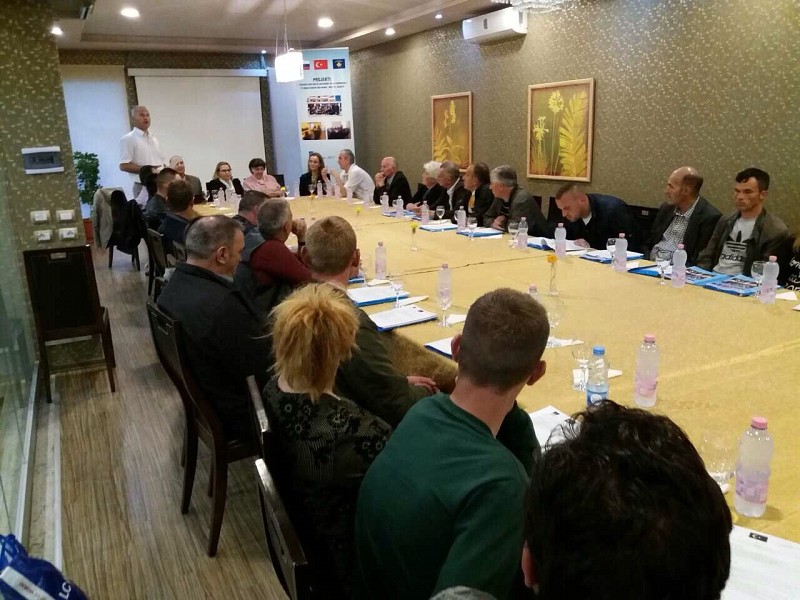Socio-Economic Rehabilitation and Reintegration of Mine/UXO Survivors in Kosovo* Continues

Kosovo* remains contaminated by mines, cluster munitions and other explosive remnants of war (ERW) as a result of the conflict between the Federal Republic of Yugoslavia and Kosovo* Liberation Army in the late 1990s, and the military intervention of NATO in 1999. An estimated 45 million square meters of land was mine and cluster affected. Yet, still today new areas are being found as suspected of mine/ERW contamination.
With the purpose of addressing the long-term effects of mine contamination, ITF is implementing a project of socio-economic rehabilitation and reintegration of mine/UXO survivors in Kosovo* in cooperation with the Institute for Promotion of Education (IPEDU). The project started on 1 February 2017 and will finish on 1 December 2017. Its goal is to improve the psychosocial and health situation of mine/UXO survivors in Kosovo*. The proposed program is conceived as a holistic approach including information, support, awareness rising, empowerment, and activation of resources in the immediate environment of survivors and at the state level.
A list of persons, who sustained serious injuries from mines and unexploded ordnance (UXO), was composed and they were included in the program based on the list of survivors of mines and UXO accidents and the registry of Ministry of Labour and Social Welfare. Through the project the selected survivors benefited from three two-day workshops.
The last workshop was held in Durres, Albania between 6 and 8 October 2017 and was attended by 43 participants. One of the lectures was delivered by Slovenian expert Dr Anica Mikuš Kos, paediatrician and child psychologist. Ms Gul Sarıgül, Counsellor of the Turkish Embassy in Tirana and Yeşer Tokat, First Secretary, who represent the donor were also present. The previous two workshops were implemented earlier this year.
The workshops were run by a multidisciplinary team of professionals in an interactive way, and gave to participants opportunities to speak out about their problems and stressful experiences. Through the workshops participants among themselves and lecturers provided help and support. At workshops, participants exchanged and received information, gained new knowledge and know-how needed for overcoming internal, relational, medical, social and other difficulties. Their awareness legal and human rights was also improved.
This project proved that some activities do not require large financial investments to have an impact on people’s lives. Every dollar counts in changing survivors’ lives for the better, improving their circumstances or providing them with opportunities that would not be available otherwise.